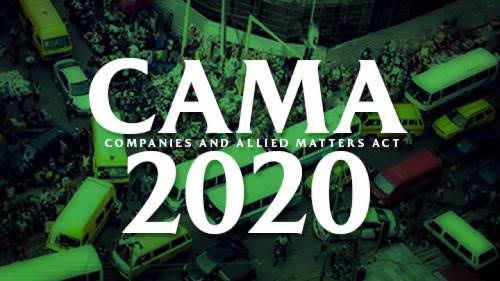By Raphael B. Tokma Esq,
The Companies and Allied Matters Act 2020, hereinafter referred to as (CAMA) which repealed and replaced erstwhile 1990 Act, was one of the most anticipated Bills of the decade.
There was an expectation of radical change in Nigeria’s Corporate Governance regime, geared towards enhancing the ease of doing business, fostering accountability and revolutionizing the corporate practice in Nigeria.
At least, that was the expectation of major players in the corporate sphere. The CAMA, however, embedded in its sections provisions which pose a serious threat to the existence of non-profit organizations and their right to freedom of association and religion.
Dominant amongst these sections is Part F, specifically, Section 839 which vests the Corporate Affairs Commission with powers to suspend trustees of an association for – (a) misconduct or mismanagement of the association’s administration; (b) to secure the proper use of the association’s property towards the achievements of its goal; (c) for public interests or; (d) where the affairs of the association is being run fraudulently.
Also, the Commission is further empowered to appoint interim managers who will superintend over the affairs of such association and under the supervision of the Commission.
The provision above is one amongst the many provisions in Part F of the CAMA which has been perceived by many, and rightly so, to have a “chilling effect’’ because of its tendency to violate constitutionally guaranteed rights.
It is worthy of note that before the Act was assented to by President Muhammadu Buhari, the Socio-Economic Rights and Accountability Project (SERAP) wrote an open letter to the President, requesting him to “urgently rescind your assent to the Companies and Allied Matters Act, 2020, [CAMA 2020], and to send the legislation back to the National Assembly to address its fundamental flaws, including by deleting the repressive provisions of the Act, particularly sections 839, 842, 843, 844 and 850 contained in Part F of the Act, and any other similar provisions”.
The excerpt of the Pre-action reads thus:
By seeking to suspend and remove trustees, and appoint interim managers for associations, the Government seems to want to place itself in a position to politicize the mandates of such association and to undermine the ideas that the right to freedom of association and related rights are supposed to be protected in a democratic society”.
I align myself with the position of SERAP.
Section 40 of the 1999 Constitution (as amended) of the Federal Republic of Nigeria, the African Charter on Human Rights, The Revised Treaty of the Economic Community of West African State, among other laws and conventions which Nigeria is signatory to, have guaranteed the rights of Nigerian citizens to associate freely, and freedom to practice any religion of their choice.
The involvement of the Commission in the suspension, removal, and appointment of interim managers, and supervision of the running of the affairs of those associations by the Commission is a threat to the freedom of association and religion of members of those associations and religious bodies.
This is because the Commission has the power to impose on unwilling members of an association certain trustees who do not share in the goal, faith and aspirations of their organization, thereby, leading to likelihood of derailment in pursuit of their motives or in the worst case, winding up of such organizations.
Admittedly, it is not out of place for the Commission to regulate the affairs of religious bodies and other non-governmental associations as it is done in other places like the United Kingdom under the Charities Act 2011.
However, section 839 (1)(b) of the CAMA did not extend its frontiers to capture certain factors such as identifying a particular trustee who is responsible for the said misconduct or mismanagement of the association and taking action against him alone. Instead, it rather ambiguously states that the Commission can suspend “the trustees” of an association.
The UK Charities Act is clear on identifying the trustee responsible for the misconduct or mismanagement and taking action against such person, while the CAMA targets a class of trustees, irrespective of who the violator is.
This lacuna can be a room for autocracy and arbitrariness which will likely lead to the violation of the rights of members of those associations.
It is worthy to note that most non-governmental organizations that have made tremendous impact in various Nigerian sectors through donor-funded projects, and this stringent provision can be a bad signal to their benefactors.
Finally, Section 839 failed to conceptualize and expatiate on the definition of certain terms. For example, since the Commission can suspend trustees on the basis of public interest, the CAMA should have particularly given a consideration as to what may constitute mismanagement, misconduct or a violation of public policy.
The absence of this, is leaving the fate of these associations at the whims of the Commission – a blatant abuse to rule of law and democratic rights and freedoms.
Raphael Tokma Esq is an Associate at NV Denden & Co( Barristers and Solicitors) and an Associate Member at the Chartered Institute of Forensics and Certified Fraud Examiners.







